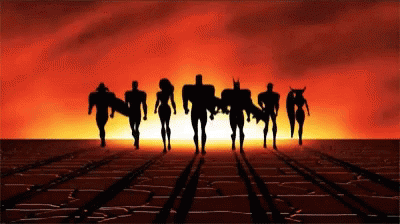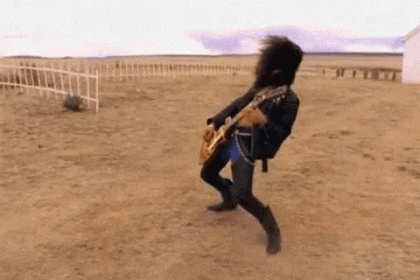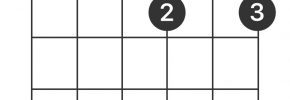Mission Complete
Guaranteed progress

Many of us like to do things on our own as it gives us confidence in ourselves as well as the satisfaction of knowing that we didn’t need to depend on someone else.
Whether it is preferred or even necessary will depend on what exactly we are doing of course, however it’s safe to say that when the outcome is positive, we do get a sense of accomplishment, confidence, encouragement etc.
There are times however where we just can’t make something happen on our own even though the task itself does not require a second person. Physical limitations (ie. heavy lifting) or missing qualifications (ie. an electrician) are obvious reasons that require a second party that is capable or qualified to help, but what happens when the challenge is related to lack of training or knowledge, or better yet, lack of motivation?
Knowledge or training are simple enough nowadays as info is literally a simple internet search away. The internet offers multitudes of audio, video, and articles on almost anything from basic repairs, learning an instrument, to medical procedures! We do need to be careful with the source we choose to ensure that the source is accurate and trustworthy however information is no longer the problem it was 20 years ago as it is easily accessible in various formats through the web alone.
Lack of motivation and feeling discouraged are however major factors that can make or break your progress and often the number one reason for abandoning an activity altogether.
Enter: THE JUSTICE LEAGUE!

While I do say that to add humour, this is a perfect example of how even superheroes must sometimes join together to create a more effective team.
The solution can be as simple as including one or more people to the challenge. Not only will this make us accountable and obligated to others, but it will encourage and motivate one another as well. Since everyone has their own rhythm, strengths, weaknesses, and character, odds are that the day you lack motivation; someone else will be at the peak of theirs and therefore they may be just what is needed to keep you in the game. A little encouragement, perhaps even a little competition or simple support, can go a long way to pick you up at just the right moment.
So go ahead and ask for help! Create a support group, a network, a team, or … a league!
– Frank 🙂 👍
Monday Motivation
Improv over D A G

[responsivevoice_button]
A major key has 3 major chords, 3 minor chords, and 1 diminished chord so you basically need to decide what function each of your major chords will have before you can decide what scale to play over each chord (or over the whole chord progression).
One option is to look at every chord as a new key however when you lay out all possible options for each chord, you’ll see that one key, D major in this case, contains all 3 of your chords and is therefore the safest key to work with. It isn’t necessarily the most creative but definitely the safest and easiest on the ears. You wouldn’t be incorrect if you chose to use any of these chords as a modulation to another key as that is also a possibility. As the composer of your song, you can take whatever path you prefer. If you’re not the composer however and you are simply trying to understand how the original composer intended it to be played, the extra effort to understand all options is necessary as you may wish to play a song or passage as it was intended to be played.
As far as improvisation goes, you can play the D major pentatonic over all three and it will give you plenty of safe notes to play with. However you can also alternate between the G major pentatonic over the G and the A major pentatonic over the A and you wouldn’t be incorrect to do so.
It’s your choice and it really depends on where you want the music to go. If you are playing with another instrument however (ie rhythm guitar or bass) and they also have the freedom to improvise a little, it’s important that you’re all on the same page so that you’re all playing in the same key. In fact, as long as you’re all in synch, you can move the chord progression up or down a half step (or as far as you’d like) and it will still sound good because it will sound intentional. 😎👍

What is x22010?

[responsivevoice_button]
Question :
If an open position C Major chord is played with this fingering : x32010 …
… What chord would this fingering refer to : x22010
Answer :
All the notes add up to a Cmaj7… however since music theory is meant to communicate as much info as possible to another person, saying C/B not only tells us that it’s a Cmaj7 sound but also how to play it the way it was meant to be played* (with a B in the bass). C/B communicates more info in my opinion. 😎👍

Note :
*When I say ‘the way it’s meant to be played’ I mean ’the way the composer is expecting you to play it’. There’s a very high probability that whatever chord precedes or follows this chord is probably a semi tone or tone away from B and that this chord is part of a melodic theme that is moving stepwise l)
Monday Motivation
What scale do I learn first?

[responsivevoice_button]
There is no right or wrong answer except I do believe that whatever peaks your curiosity and gets you to play is the thing you need to do because it shouldn’t feel like work.
But how does one choose where to begin if you don’t know what you don’t know?
‘My’ suggestion is the following :
Start with the major scale related to your favourite key (usually C major or G major) and learn it all over the neck. Every other scale that you will come across, be it the pentatonic major or minor, whole-tone, In-Sen, diminished, any of the modes etc. will always refer to the major scale as a reference point.

Tip: If you learn the major scale (above), you will have automatically also learned the Ionian – Dorian – Phrygian – Lydian – Mixolydian – Aeolian – Locrian scales as well as the major and minor pentatonic scales.
😎👍
D7 in the key of Bb major?

[responsivevoice_button]
Why is there a D7 chord in the key of Bb Major? Answer : because you’re actually in G harmonic minor! 😜 👍
If you take a harmonic minor scale and build chords over each scale degree you’ll notice that the D chord is now major and not minor as it would be over the G Natural Minor scale. The reason for this is that you’ve raised the 7th scale degree of the natural minor scale to make it a harmonic minor therefore every chord that contains that note is now changed. The same applies to the Melodic minor scale as you are now raising both the 6th and 7th degrees on your way up the scale and lowering them again on the way back down (to the natural minor again).
But there are other ways to explain the D7 chord. It really just depends on how you understand it best so that it can be reproduced. If you had to instruct someone else to reproduce it you’d have to decide on how you need to explain it for the other party to understand what you need but how you choose to understand it is up to you if you are composing music.
Theoretically you can just say that D7 is a borrowed chord and you can play a D Mixolydian over that chord and still wouldn’t be wrong.


